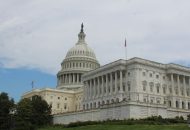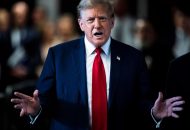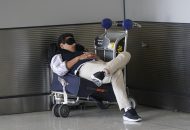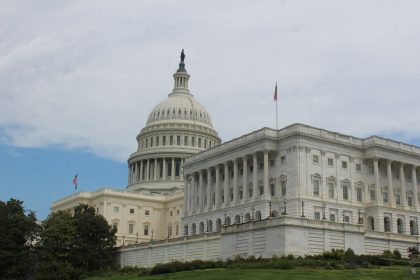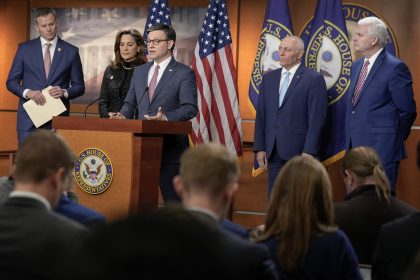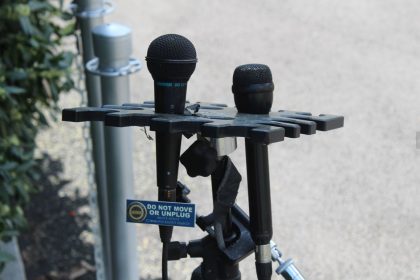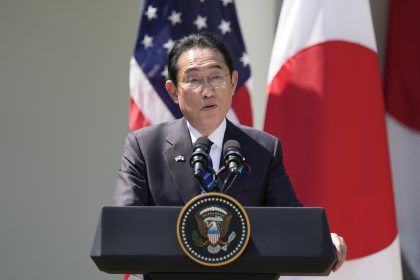Child Care Sector On Brink Of Collapse

WASHINGTON – Just a few months ago, Braudilia Mendez had four employees to help care for the toddlers at Curious Mind, a bilingual child care center in Washington, D.C.’s Petworth neighborhood.
But when the pandemic struck, Mendez was forced to shut the small day care center down for several months, eventually laying off her entire staff.
The day care has now reopened, but enrollment has taken a hit. These days, Mendez cares for just two kids, down from the 15 who attended Curious Mind before the coronavirus broke out.
On top of that, Mendez has to run the place on her own. “It is a little difficult because I have to do the administration and take care of the children and clean up,” she said. “I do everything.”
With her bottom line decimated, she has struggled to pay rent for her business, which operates from a small rowhouse lodged between a liquor store and a hair salon on Georgia Avenue.
And the pandemic has also brought on some unforeseen expenses –- before reopening, Mendez paid around $500 for a professional cleaning crew to disinfect the space.
Now, she worries her day care center, which she opened in 2009, could be on its last legs. “If I have to close, I have to look for work,” she says. “Because I have to pay rent at my house, I have to pay bills, I have to buy food for my children.”
Mendez is just one of many child care providers across the U.S. who are struggling to make ends meet due to extended closures, dwindling enrollment, and the additional financial burden of strict COVID-19 regulations.
“There has been a lot of concern in the field that the shutdown may have caused permanent damage to those businesses,” says Anne Douglass, executive director of the Institute for Early Education Leadership And Innovation at the University of Massachusetts in Boston. “There’s only so long after the extended closures that they can continue to lose money before they shut down,” she added.
In many states, child care centers were shuttered for months when U.S. coronavirus cases hit their first peak in March. In the District of Columbia, most providers didn’t get the green light to reopen until late May, when officials launched phase one of the city’s reopening plan.
“The economy can’t restart if parents can’t go to work.”Anne Douglass, executive director of the Institute for Early Education Leadership and Innovation at the University of Massachusetts
Before they could reopen, they had to figure out how to implement new coronavirus regulations. Most states now mandate daily health screenings for children and staff, the use of personal protective equipment, and personnel training. District child care facilities are now limited to 10 people per room, and must maintain six feet of distance between each individual.
Even with those safety measures, many parents have remained concerned that taking their kids to day care could be risky. In a June survey by Care.com, 63% of families said they were uncomfortable putting their children in day care as states reopen.
As a result, attendance at day care centers has dropped across the board, and many providers could soon be forced to close.
In a nationwide survey of child care providers by the National Association for the Education of Young Children, 86% of respondents said they are serving fewer children now than they were before the pandemic.
Roughly two out of five providers said they will need to permanently close without emergency funding, according to the poll.
Douglass says the widespread closure of child care facilities could have a crippling effect on the U.S. economy if parents are unable to find anyone to watch their children. “The economy can’t restart if parents can’t go to work,” she says.
Additionally, many children could end up missing out on an experience that researchers say plays an important role in their development. Studies show that having access to early child care can improve children’s physical and mental health over the course of their lives.
“Child care does more than just keep children safe and loved while their parents are working,” says Douglass. “It’s actually an early learning experience that helps kids get ready for school.”
The Coronavirus Aid, Relief and Economic Security Act (CARES) passed by Congress in March allocated $3.5 billion in emergency funding for the Child Care and Development Block Grant Program. The funding can be used by child care providers affected by decreased enrollment and coronavirus related closures, and to pay for child care assistance for essential workers.
But Douglass says the CARES Act only scratched the surface. “What’s needed is a massive infrastructure investment in the child care sector to keep it alive so that parents can go back to work and feel confident that their kids are being cared for and educated in safe and nurturing environments.”
On Monday night, Senate Republicans unveiled a stimulus package called the HEALS Act that would bolster the CCDBG program with an additional $15 billion for child care providers.
But advocates were quick to denounce the plan, which they say falls short of what’s needed for a quick recovery in the child care sector.
“Mitch McConnell has once again failed to meet the moment,” said Melissa Boteach, vice president of Income Security and Child Care at the National Women’s Law Center. “The child care industry needs at least $50 billion in order to ensure providers and workers can stay afloat while keeping themselves and the families they care for safe.”
The Center for American Progress estimates that nearly 4.5 million child care slots — roughly half of the nation’s capacity — could be lost if providers don’t receive enough emergency funding.
In the House, lawmakers are expected to vote this week on a bill that would unlock an additional $50 billion in emergency funding for child care providers in the form of federal grants.
The Child Care Is Essential Act, introduced in late May by Rep. Rosa DeLauro, D-Conn., would allow providers to use the money for a broad range of expenses, including personnel costs, staff training, rent and mortgage payments, and even mental health services for children and employees.
In exchange, day care centers would be required to employ staff at the same rates as before the pandemic. Those still closed due to coronavirus lockdowns would need to promise to reopen once local regulations allow it.
A recent poll by the Center for American Progress found that 86% of Americans support creating a fund to bail out the child care sector, and that few respondents were sensitive to a $50 billion price tag.
“We bailed out the airlines, corporations got PPP loans, hedge fund managers and real estate developers got a $170 billion tax break completely unrelated to the pandemic,” said DeLauro in recent testimony before the House’s Rules Committee. “We need to save the child care industry. It is a matter of economic security for women and families.”









